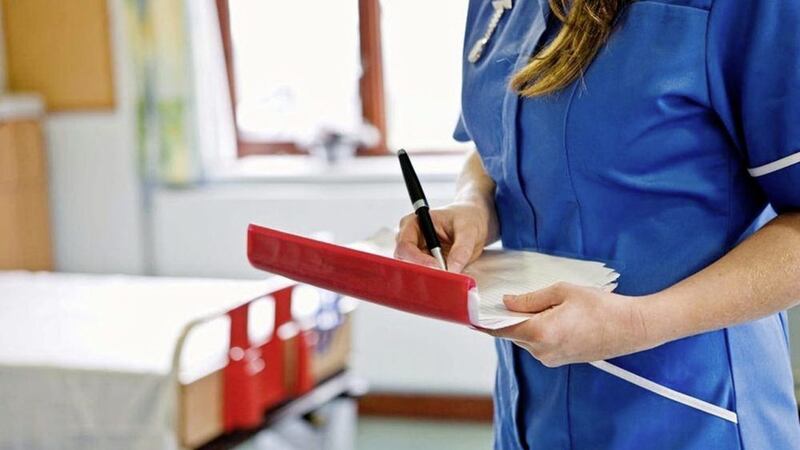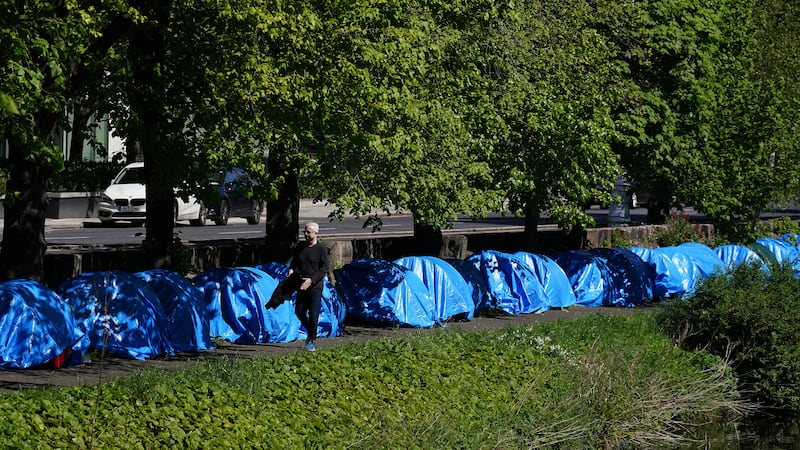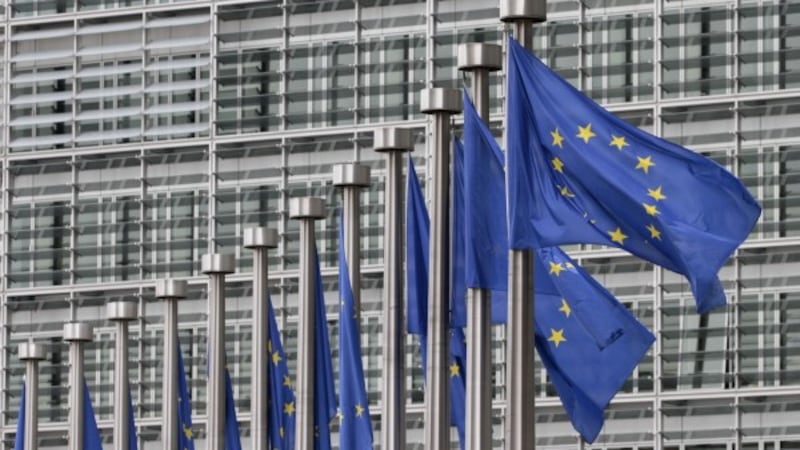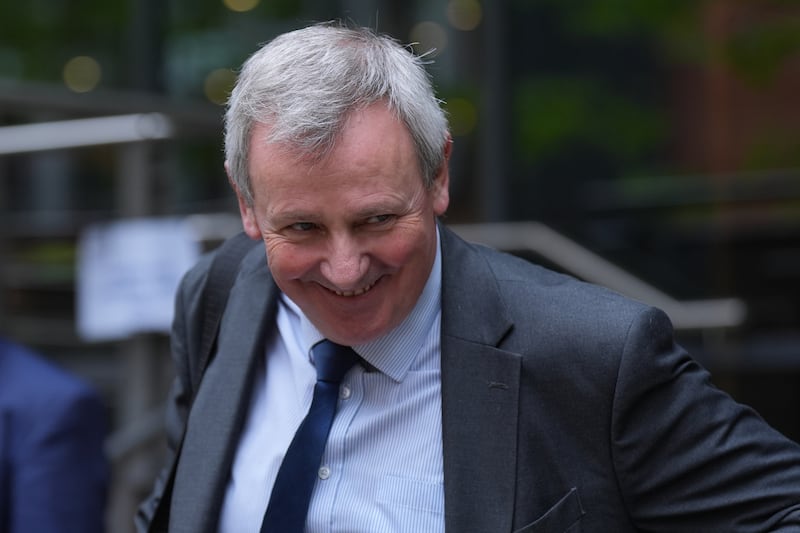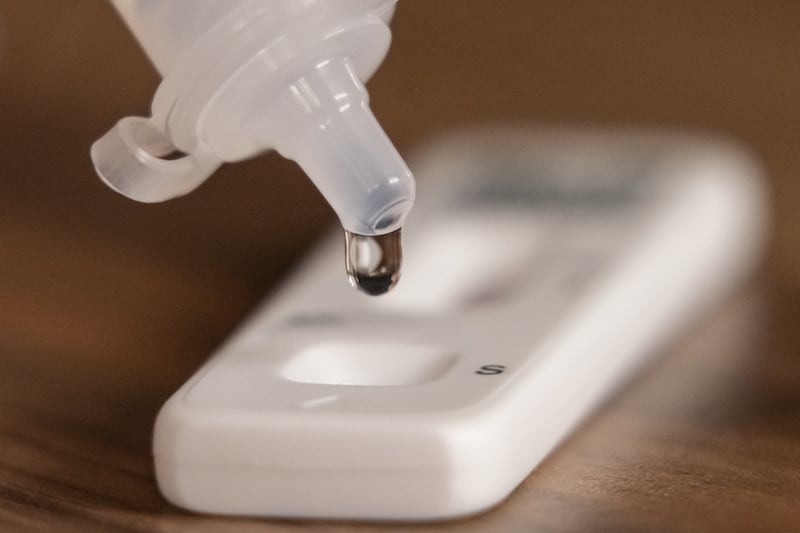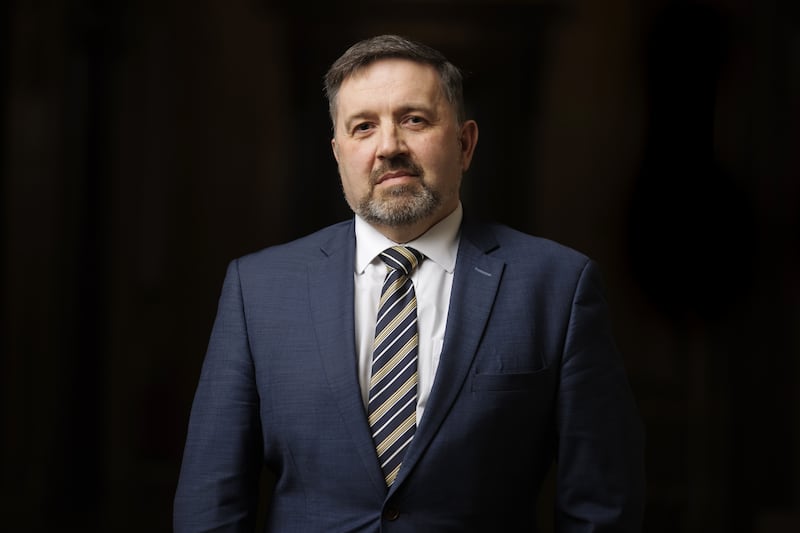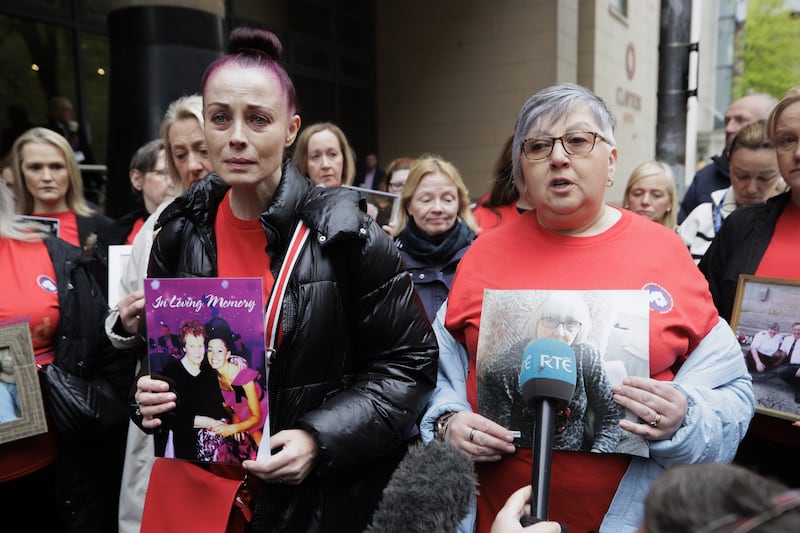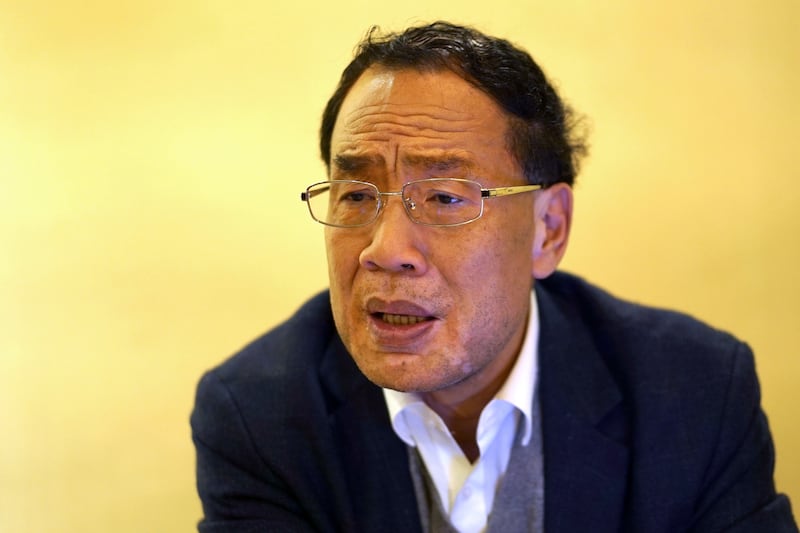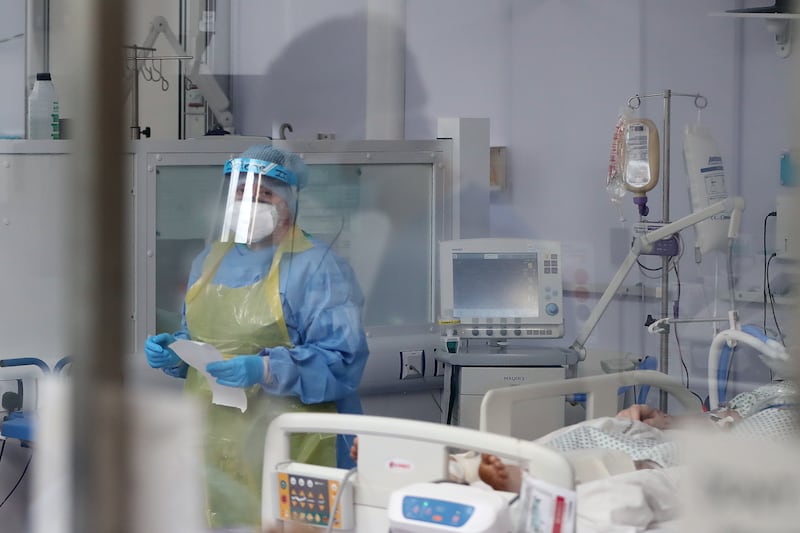The coronavirus death toll in the Republic of Ireland has risen to 1,604 after a further 13 deaths were announced by the National Public Health Emergency Team.
There have been 76 confirmed cases of the disease, meaning there are now 24,582 confirmed cases of Covid-19 in the Republic.
Of those for whom transmission status is known, community transmission accounts for 60 per cent, close contact accounts for 38 per cent, travel abroad accounts for 2 per cent.
In the north, the number of people who have died after testing positive for coronavirus has risen to 505 after one more death was reported by the Department of Health.
The department also reported a further 41 cases of confirmed Covid-19, bringing the total number of positive cases in Northern Ireland to 4,545.
Earlier, the Republic's Minister for Health Simon Harris announced the establishment of a nursing home expert panel to examine how the Government responded to Covid-19 as well as assessing best practice for the months ahead.
The decision comes following a recent National Public Health Emergency Team (NPHET) recommendation.
The panel will examine national and international measures in response to Covid-19, as well as emerging best practice to ensure all Covid-19 response measures are prepared for.
The Department of Health said this was in light of the expected ongoing Covid-19 risk and impact to nursing homes over the next six to 18 months.
The panel will report to the minister by the end of June 2020.
There has been widespread concern over the number of deaths associated with residential care facilities, with more than 60% of all Covid-19 deaths in Ireland related to care homes.
Mr Harris said: “Throughout the response to the pandemic there has been particular focus on the challenges in the nursing home sector and it has been and remains an absolute priority for me in the overall response to Covid-19.
“We must continue to plan appropriately to meet the ongoing challenges of Covid-19 into the foreseeable future.
“I believe that the establishment of a Covid-19 Nursing Home Expert Panel to examine and advise on these matters is a crucial aspect of good planning to support Ireland’s navigation through the Covid-19 landscape and ensure the best possible safeguards are in place to protect the many people who call nursing homes their home.”
The expert panel will be chaired by Professor Cecily Kelleher, principal of the College of Health and Agricultural Sciences, UCD. Professor Kelleher will be joined by Professor Cillian Twomey (a retired geriatrician), Petrina Donnelly, group director of nursing, RCSI Hospital Group, and Bridget Doherty, representing the public interest.
Mr Harris added: “I want to sincerely thank the experts for their willingness to undertake this important task and I look forward to working closely with them in the weeks ahead.”
It is expected that the expert panel will commence its scoping work early next week.
Meanwhile, the head of the Health Service Executive (HSE) urged the public to “hold firm” over Covid-19 restriction measures.
Paul Reid, chief executive of the HSE, acknowledged that the public are worried about jobs and bills, but added that there “are bright days ahead”.
He made the comments as the number of patients with Covid-19 in hospitals continues to fall.
In a tweet Mr Reid said: “Like many people, today I feel for my family and friends who are worried about their jobs, are anxious over bills and are feeling stress.
“I miss our family and our granddaughter abroad. There is lots of help out there though and there are bright days ahead. Hold firm.”
Ireland’s chief medical officer said he had not seen a worrying trend in people’s behaviour since lockdown was eased earlier this week.
The majority of people were adhering to restrictions, Dr Tony Holohan added.
The latest data on infection, influenced by behaviour during an earlier period, showed the rate of spread was below one.
Photos published earlier this week displayed people congregating on busy beaches near Dublin after the area in which people can exercise was extended to five kilometres.
Dr Holohan said: “I have not seen any worrying trend in relation to those but it is too early to say.”
On Friday the senior medic said 11 new deaths had been reported, bringing the toll to 1,592.
Another 115 new cases were confirmed, bringing the total to 24,506.
One new admission to hospital intensive care was recorded.
Dr Holohan said there was not widespread immunity to the virus.
“The percentage of people who have evidence of having been exposed to this and who did not know as individuals, that they were exposed to this, percentages are quite low and not nearly large enough to have any impact on the progression of the further wave,” he said.
“It does mean therefore that from the point of view of infection it would behave exactly the same way.”
Dr Holohan said the public health emergency team had “recommended that the HSE build on the very significant work to date in expanding the testing capacity, to ensure that there is an integrated and co-ordinated clinical and public health-informed approach to the establishment and implementation of a national testing strategy”.
